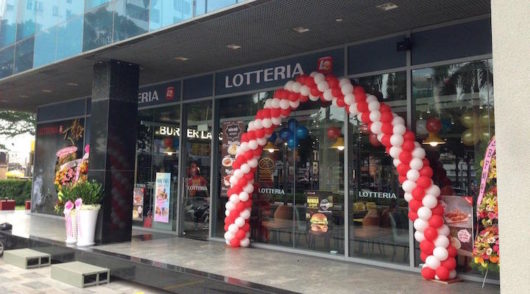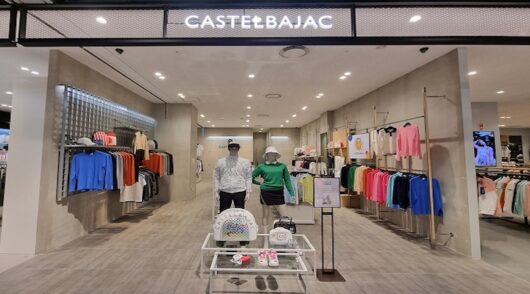Guangzhou has taken the lead in a pilot cross-border shopping eCommerce scheme, providing both challenges and huge opportunities for Hong Kong businesses.
Cross-border online shopping is increasingly popular on the Chinese mainland. Known as haitao, the practice allows consumers to order products via overseas online shopping platforms, and have their purchases dispatched by international couriers or collected and shipped to China by forwarding agents. Its popularity has been spurred by the comparatively limited range of overseas goods available across the mainland and the premium prices of such items when available.
Several mainland cities have been approved to join the pilot program for cross-border e-commerce. But only six cities – Shanghai, Chongqing, Hangzhou, Ningbo, Zhengzhou and Guangzhou – have been assigned the right to undertake comprehensive import-export activities. This has given these cities the chance to establish conventional outlets designed to facilitate overseas online shopping. Guangzhou has been at the forefront of maximising this opportunity.
Three cross-border eCommerce businesses – MeijoyBest (Guangzhou MeijoyBest E-commerce Co Ltd), 020 (Guangzhou Lingerling Cross-Border E-Commerce Co) and Ieasy (Guangzhou Yangxitai E-Commerce Co Ltd) – recently commenced operation in the city. A fourth, Nansha Cross-Border Direct Shopping Experience Centre, will open shortly. On its first day of trading, nearly 100,000 people visited MeijoyBest’s 230 sqm store, a clear indication of the huge demand in Guangdong for imported goods.
1. Lower prices
Overall, prices tend to be some 30 to 60 per cent cheaper than similar goods available elsewhere. According to the procedures for general trade, imported goods are required to pay three taxes – a customs tariff, VAT and a consumption tax.
The tax rates vary according to the category of the goods. The tax rate for cosmetics, for example, can be as high as 50 per cent. Additionally, every logistics step in the distribution of a product, from the importing agent to wholesalers and retailers, adds to the overall cost.
As overseas online physical stores place orders online and collect goods offline, the only tax payable is on baggage and personal postal articles, thus greatly reducing the overall tax burden. Furthermore, these stores are entitled to offer tax exemptions for single purchases valued under Rmb50. This, together with the lack of a daily ceiling (though each purchase may not exceed Rmb1000 in value and the unit price of indivisible commodities may not exceed Rmb1000), greatly boosts consumer’s inclination to spend.
The tax on baggage and personal postal articles is a form of import tax levied by the Chinese customs on baggage and articles carried by incoming travellers, as well as on personal postal articles. This tax has four tax bands – 10 per cent (food, toys, and books and periodicals), 20 per cent (textiles, home electrical appliances and audio-visual equipment), 30 per cent (high-end watches and golf clubs), and 50 per cent (tobacco, wine and spirits, and cosmetics).
2. Peace of mind and authenticity
There have been some instances of eCommerce sites selling counterfeit goods in recent years. There have also been many cases where people did not receive goods they had paid for. These incidents have prompted consumers to return to physical retail channels, which are perceived as lower risk. Typically, consumers have greater faith in goods they can touch and examine and that they can pay for on the spot.
Sales at overseas online physical stores are monitored in real-time by the relevant government departments. The sources and quality of goods and the monitoring procedures are more transparent than is the case with online-only shopping, thus they are more reliable. Guangdong consumers seem to have welcomed these overseas online shopping physical stores as a preferred and more trustworthy purchase route.
3. On-site collection
According to Tao Zili, chairman of Meijoybest E-Commerce Co, on-site pick-up is only possible at the company’s physical store in the Guangzhou Bonded Area. Its Guangzhou Pearl River New City store still has to dispatch online orders to consumers. Upon customs approval, the purchase is dispatched from the bonded area and delivered by the appropriate logistics companies. This process takes up to 48 hours, faster than the existing delivery arrangement for goods purchased at overseas online shopping websites. The company is building a 50,000sqm overseas online shopping physical store in the Guangzhou Bonded Area, which is due to open next month. This new store will allow on-site pick-up and provide shoppers with an experience very similar to that of conventional shopping. The facility is expected to provide an additional boost to the uptake of overseas online shopping in the city.
The physical store at Pearl River New City is, in fact, primarily a promotional outlet for its overseas online shopping mall in the bonded zone. To attract customers, the Pearl River New City store has a “duty paid section”. All goods sold here have the three taxes pre-paid and are available for immediate on-site collection. The drawback is that prices are very similar to conventional market prices elsewhere in the city.
4 Removing language and transaction obstacles
Most overseas eCommerce sites, typically featuring an English interface, are not available in Mandarin. If consumers encounter problems with their purchases, they must make long-distance calls and communicate with the vendor who often does not speak Chinese. In addition, many of the credit cards issued by mainland banks are not accepted by overseas shopping websites. Establishing overseas online shopping physical stores on the mainland addresses both of these problems.
In terms of Hong Kong businesses, the emergence of these stores has two clear implications:
1. Fewer cross-border shopping trips by Guangdong residents
While prices for most goods at these stores are higher than those for similar goods in Hong Kong (after taking the tax on baggage and personal postal articles into account), if travel time and costs are factored in, it is still cheaper than purchasing directly in Hong Kong. This will inevitably affect Hong Kong’s retail business and reduce trade between the two cities. It may, however, help to alleviate Hong Kong’s grey market goods problem.
2. Greater access to domestic sales channels
Given that there are no restrictions on the kinds of goods sold in these stores, there is considerable scope for Hong Kong-sourced items. Tao, for instance, welcomes the opportunity for increased cooperation with Hong Kong suppliers. As MeijoyBest will take care of issues relating to taxation, promotion, marketing and logistics, this gives Hong Kong firms that have no marketing network in Guangdong a streamlined route into the massive mainland market.
In terms of the operation of these stores, Tao believes there are three key elements required for success – a seller system (management of supply and suppliers); a sales system (eCommerce platform and payment system); and a logistics system (management of dispatch and transportation of goods). These all require customs approval and must comply with the relevant customs monitoring systems.
While Tao was reluctant to disclose the exact amount of investment required to deliver this, he did indicate that an eight-figure sum went into developing these three systems over the past two years.
For more China market opportunities, visit the HKTDC.






